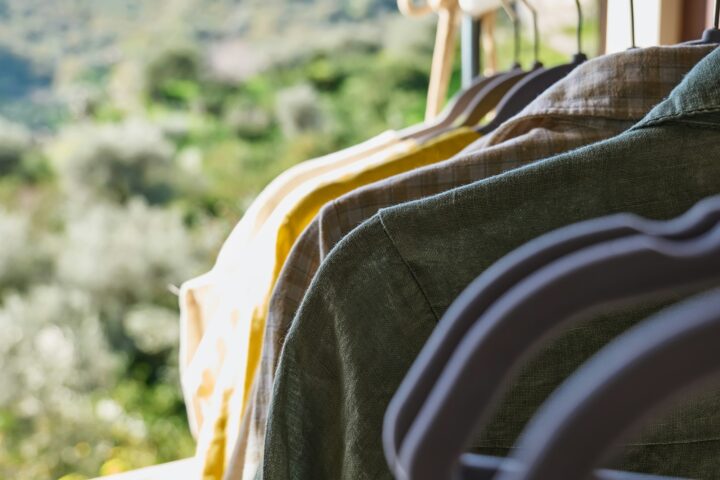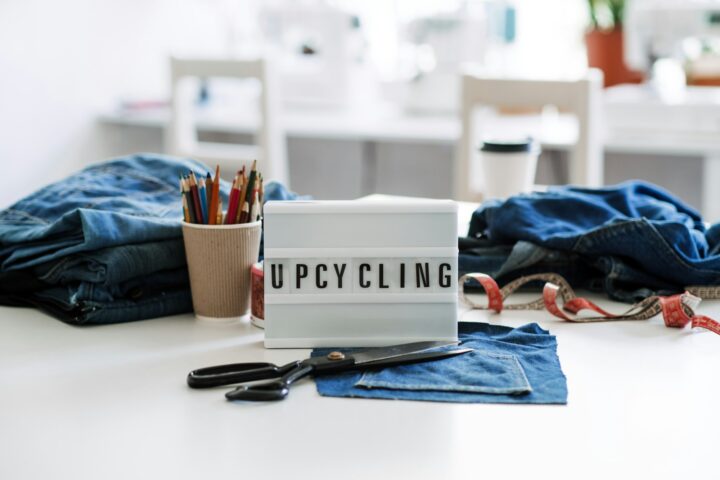We have seen that product of the Covid-19 the fashion industry, textile and fashion retail is in full transformation in which on one hand sustainability has been one of the movements that have been highlighted in recent months in view that we have realized the damage we have done to our planet, as well as, It has become evident that it was not necessary to be addicted to consumption by the accelerated movement of the seasons, thus, it is gradually decreasing consumerism without a transfund, since, current consumers and even more those belonging to the Millenials and Generation Z generation are asking before purchasing products who, how, what materials and who made their clothing, footwear and accessories. On the other hand, also thanks to the pandemic, many consumers were forced to use technology from providing work via homeoffice without the need to go to the office to make online transactions of all kinds from food purchases, bank payments and obviously purchase clothing, footwear and accessories in general.
At the same time, a very interesting trend emerged when combining sustainability and e-commerce, I am referring to the resale of new or used luxury fashion products.
But, how was this new form of business in the fashion industry born?
Well, it started a long time ago with the rental of luxury garments and accessories, through the digital platform Renttherunway https://www.renttherunway.com/ and then with the sale of luxury brand products through platforms such as Farfetch https://www.farfetch.com/pe/ or Mytheresa https://www.mytheresa.com/ and is that the acquisition of luxury products via online is not a novelty, although luxury does not have an exact definition, since it is very subjective, in fashion, much has to do with the “aspirational concept of the consumer” in addition to the fact that it values exclusivity, superior product quality, history and reputation, among other characteristics, which makes it willing to pay a high price to get it.
In the case of resale, on the one hand, the seller recovers or has a profit margin for the investment made in the purchase of a luxury product and on the other hand, the buyer acquires a product at a lower price (although this is not necessarily so, we will explain that later) and also feels that he is fighting against environmental pollution thereby reducing the carbon footprint by using a second-hand product.
It should be noted that within the resale market of used luxury brand products, we also find that shoe or watch boxes, bags and/or wrappings of such luxury products are being commercialized, such as the Louis Vuitton box or the Tiffany turquoise blue color box, better known as Tiffany Blue with Pantone Blue number 1837C, that is, through social networks such as Instagram in which people presume that they are luxury consumers, the acquisition of such boxes is a way to get closer to being this type of products, given that among Instagram followers or Facebook friends do not actually know what it has inside the box.
However, we must be careful because this black market of acquisition of boxes and/or wrappings could generate an increase in the manufacture and marketing of counterfeit products that would be susceptible to be reported for trademark infringement or copyright, as the case may be.
On the other hand, we have that some consumers who purchase luxury products are seeing it as a long term investment, for example, owning a Birkin handbag of the Hermés brand. As you know to acquire this handbag is not only enough to pay its high price (it costs approximately US$ 50,000.00) but you have to sign up on a list and wait to be called to buy the handbag, this can take months or just do not call you, that reminds me of the famous scene in which the actress Kim Catrall playing the character of Samantha in the series Sex & The City, pretends to be a famous actress played by Lucy Liu to have the Birkin.
The resale of this type of luxury products can be very profitable and with the passage of time such items are revalued, even up to triple its value, in fact, auction houses have been the first to realize this business, either by auctioning jewelry or clothing of Hollywood artists or royalty.
But now the resale through digital platforms can be available to everyone, and it is more with the rise of digital platforms such as the startup StockX https://stockx.com/, which resells only sneakers, considered as a unicorn since it is valued at 1,000 million dollars, the digital platform Grailed www.grailed.com that resells all kinds of garments such as polo shirts, jackets, pants, among others, or the virtual platform The Real Real https://www.therealreal.com/ that sells second-hand luxury clothing and accessories, among others.
In this sense, resale is becoming more and more popular, which could imply a problem for the fashion industry, since the big brands cannot have control of their products or, if this is the case, cannot participate in the profits of such resales, and even start selling fake products in market places, which would violate the intellectual property of the big brands.
However, on the other hand, big brands could take advantage of technology and use blockchain to track their products as is the case of aura blockchain consortium https://auraluxuryblockchain.com/ an alliance of the LVMH, Prada Group and Richemont groups, which will allow traceability throughout the production and marketing chain of their products supervising that these are only sold in authorized channels or are encouraged to participate in resale marketplaces as is the case of the platform of second-hand luxury brands Vestiaire Collective https://us.vestiairecollective.com/ where the Kering Group has already acquired a percentage of shares of this platform.
Undoubtedly this secondary market better known as resale is a new business alternative in the fashion industry and that surely the fashion law will participate in its development and regulation in the future.
Annalucia Fasson Llosa
Partner of the corporate area and head of the fashion and retail law department at Muñiz, Olaya, Meléndez, Castro, Ono & Herrera Abogados















